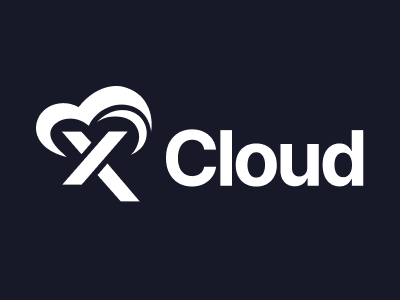Description

Attune

Opsgenie
Comprehensive Overview: Attune vs Opsgenie
Certainly! Let's delve into each of these products, detailing their functionalities, target markets, market positions, and key differentiations.
Attune
a) Primary Functions and Target Markets:
- Primary Functions: Attune is a comprehensive IT infrastructure management tool designed to automate repetitive tasks in data center operations. It facilitates configuration management, software deployment, and system updates.
- Target Markets: The primary target market for Attune includes medium to large enterprises, particularly those with extensive IT infrastructure needing efficient management and automation of their systems. It's also popular among managed service providers (MSPs) who offer IT services to various clients.
b) Market Share and User Base:
- Attune is niche compared to some other large-scale enterprise management tools. Its market share is not as prominent as industry giants but caters to specific sectors that require tailored automation solutions.
- The user base is typically organizations that prioritize automation and efficient infrastructure management over more extensive, less specialized toolsets.
c) Key Differentiating Factors:
- Advanced automation capabilities: Focused on reducing manual intervention in IT tasks through comprehensive scripting and automation features.
- Customizability: Attune offers significant customization for unique IT environments, making it appealing to businesses with specific operational needs.
- Cost-effectiveness: Often marketed as a cost-effective solution for enterprises looking for robust infrastructure management without the overhead of larger systems.
Opsgenie
a) Primary Functions and Target Markets:
- Primary Functions: Opsgenie is an incident management platform that provides alerting and on-call management solutions. It integrates with various monitoring tools to ensure incidents are managed efficiently and quickly.
- Target Markets: Businesses of all sizes that rely on IT services and infrastructure, including sectors like finance, healthcare, and technology companies, where uptime and rapid incident response are critical.
b) Market Share and User Base:
- Opsgenie occupies a significant portion of the incident management market, particularly after its acquisition by Atlassian. It's highly competitive compared to others like PagerDuty and VictorOps.
- The user base is diverse, ranging from SMEs to large enterprises, notably within tech-heavy environments that rely on robust and reliable IT operations.
c) Key Differentiating Factors:
- Integration with Atlassian suite: Seamless integration with tools like Jira and Confluence, enhancing its appeal for teams already within the Atlassian ecosystem.
- Flexible alerting and scheduling: Advanced features for customizing alert rules and schedules, making it versatile for diverse team structures.
- Global presence and support: Backed by Atlassian, it provides strong international support and recognizability.
xCloud
a) Primary Functions and Target Markets:
- Primary Functions: xCloud is typically associated with cloud services, offering infrastructure as a service (IaaS). Its features include cloud hosting, storage, and computing solutions tailored for scalable enterprise applications.
- Target Markets: Enterprises of varying sizes looking to shift or expand their operations in the cloud, especially those needing dynamic and scalable cloud environments.
b) Market Share and User Base:
- xCloud's market share would depend on the specific provider. If referring to Tencent Cloud's xCloud, for instance, it's a major player in Asia but less dominant globally compared to AWS, Microsoft Azure, or Google Cloud Platform.
- The user base often consists of businesses in or expanding to the Asia-Pacific region, heavily leveraging cloud services for operations demanding high-scale and reliability.
c) Key Differentiating Factors:
- Regional dominance: Strong market presence in Asia, offering unique competitive advantages for businesses operating or expanding in these markets.
- Cost models and scalability: Competitive pricing and avant-garde technologies that cater to varying enterprise needs for cloud computing.
- Partnerships and ecosystem: Extensive partnerships and integrations with local enterprises, providing a tailored ecosystem for the Asian market.
Conclusion
- Comparative Outlook: Attune is more niche and specialized, Opsgenie is broad with a strong foothold in the incident management space, while xCloud, depending on context, competes in the global or regional cloud infrastructure sector.
- Key Differentiations: Attune shines in automation, Opsgenie in integration and incident management, and xCloud (such as Tencent's service) excels in regional cloud hosting and scalability.
Each of these products suits different enterprise needs, from IT management automation to incident handling and scalable cloud solutions, reflecting their diverse roles in the technology ecosystem.
Contact Info

Year founded :
1991
Not Available
Not Available
United States
Not Available

Year founded :
2012
+1 571-748-7000
Not Available
United States
Not Available
Feature Similarity Breakdown: Attune, Opsgenie
To provide a feature similarity breakdown for Attune, Opsgenie, and xCloud, we should first identify what each product primarily focuses on:
- Attune: Generally known as a configuration and automation tool for IT management, facilitating the orchestration of IT tasks across multiple environments.
- Opsgenie: A modern incident management platform for operating always-on services, with a focus on alerting and on-call management.
- xCloud: This could refer to Microsoft's gaming service (Xbox Cloud Gaming) or another cloud service named similarly; since the context isn't clear, I'll consider it related to IT management or cloud services for this comparison.
a) Core Features in Common
-
Automation:
- Both Attune and Opsgenie offer automation capabilities, though Attune focuses more on IT tasks automation, while Opsgenie automates incident response workflows.
- If xCloud refers to a cloud computing service, it likely includes automation for deploying and managing applications.
-
Alerting and Notifications:
- Opsgenie is built around robust alerting and notification systems for incident management.
- Attune might incorporate alerting for automation tasks and job statuses, focusing on system configuration alerts.
- A cloud-based xCloud service would offer alerting as part of its operational features for resource utilization or service issues.
-
Integration Capabilities:
- All three platforms are expected to support integrations with various third-party tools and services, enhancing their functionality across platforms.
-
Scalability:
- As enterprise solutions, all offer scalability to support growing business needs.
b) User Interface Comparison
-
Attune:
- Typically features a UI focused on task orchestration and configuration management. It might appear more technical with dashboards for script management and system health metrics.
-
Opsgenie:
- Known for a more modern and user-friendly interface, optimized for incident management. The UI emphasizes quick access to alerting, escalation policies, and scheduling for on-call teams.
-
xCloud:
- Assuming it is a cloud service platform, the UI would focus on resource management, detailed usage statistics, and possibly a range of gaming or application controls if relating to Xbox Cloud Gaming.
c) Unique Features
-
Attune:
- Focused on complex IT workflow orchestration and system-wide configuration management. Unique for enterprises needing detailed automation scripts and environment setups.
- Specialized in managing configurations across different systems and automating repetitive IT tasks.
-
Opsgenie:
- Unique for its powerful incident management features, including advanced on-call scheduling, incident escalation policies, and integration with ITSM/DevOps tools.
- Provides detailed reporting and analytics for incident response and on-call effectiveness.
-
xCloud:
- If we consider Xbox Cloud Gaming, its uniqueness lies in delivering high-quality gaming experiences across devices through the cloud.
- Alternatively, as a cloud service, it might offer specialized cloud resources or services not typically found in automation or incident management platforms.
In essence, although there is some overlap in features like automation and alerting between these products, each caters to unique user needs. The differences largely depend on whether xCloud is considered as part of gaming or cloud service infrastructure. These tools might be integrated in a single IT environment to maximize efficiency across different operational areas.
Features

Collaboration Tools
Security and Compliance
User-Friendly Dashboard
Data Integration
Customer Support

On-Call Management
Reporting & Analytics
Integration Capabilities
Incident Management
Collaboration & Communication
Best Fit Use Cases: Attune, Opsgenie
Sure, here's a breakdown of the best fit use cases for Attune, Opsgenie, and xCloud, along with how they cater to different industries and company sizes:
a) Attune
Best Fit Use Cases:
- Automation Needs: Attune is ideal for businesses that need to automate IT processes and configurations. It is beneficial for companies looking to decrease manual intervention in routine IT tasks.
- IT Infrastructure Management: Suitable for enterprises managing complex IT environments who need to streamline operations.
- Consistent Environment Setup: Best for projects that require setting up consistent and reproducible environments, such as development, testing, or production environments.
Industries and Company Sizes:
- Industries: Tech companies, financial services, healthcare organizations, and any industry where IT automation can lead to cost reductions and productivity gains.
- Company Sizes: Medium to large enterprises that have the infrastructure complexity benefiting from extensive automation.
b) Opsgenie
Best Fit Use Cases:
- Incident Management: Opsgenie is optimal for organizations that require robust incident response processes. It helps in managing alerts and ensuring timely response to critical issues.
- On-Call Management: Suitable for teams that need efficient scheduling and alerting mechanisms to manage on-call duties and reduce alert fatigue.
- Integration Needs: Businesses that rely on multiple tools for monitoring and alerting benefit from Opsgenie's extensive integration capabilities.
Industries and Company Sizes:
- Industries: IT services, telecommunications, financial services, and ecommerce sectors where uptime and response time are critical.
- Company Sizes: Organizations of all sizes, from startups to large enterprises, where effective incident management is crucial.
c) xCloud
Best Fit Use Cases:
- Cloud Infrastructure: xCloud is preferable for companies wanting to leverage cloud infrastructure for scalability and flexibility in their IT operations.
- Cost Efficiency: Ideal for businesses looking to optimize costs with a cloud-first approach that provides managed services.
- Hybrid Cloud Needs: Suitable for companies that require hybrid cloud solutions blending on-premises and cloud infrastructure.
Industries and Company Sizes:
- Industries: Retail, financial services, media and entertainment, and any data-intensive industries that require flexible cloud solutions.
- Company Sizes: Suitable for small to large enterprises, particularly those that are either transitioning to cloud-based systems or expanding their existing cloud presence.
d) How They Cater to Different Industry Verticals or Company Sizes
- Attune: Particularly valuable for industry sectors where IT reliability and process automation can significantly enhance productivity, like finance and healthcare. Supports larger companies with complex IT setups.
- Opsgenie: Provides critical uptime and response solutions across various industries that prioritize seamless operation compliance and customer experience, from small teams to large corporations.
- xCloud: Offers scalable cloud solutions adaptable across different scales and industry needs, making it a good fit for both innovative startups and global enterprises managing hybrid environments.
Each tool offers specific strengths that cater to different business needs, making them pivotal parts of IT and cloud strategy for organizations prioritizing automation, incident management, and cloud scalability.
Pricing

Pricing Not Available

Pricing Not Available
Metrics History
Metrics History
Comparing teamSize across companies
Conclusion & Final Verdict: Attune vs Opsgenie
To provide a comprehensive conclusion and final verdict for Attune, Opsgenie, and xCloud, let’s analyze each product in terms of value, pros and cons, and recommendations for potential users.
a) Overall Value
Best Overall Value: Opsgenie
- Reasoning: Opsgenie is versatile and integrates smoothly with a variety of IT and development tools, making it ideal for teams that require robust incident response capabilities. It offers competitive pricing and extended features that support both small-scale businesses and large enterprises. Opsgenie’s commitment to reliability, quick response capabilities, and intuitive user interface offer substantial value across different business environments.
b) Pros and Cons
Attune
- Pros:
- Simplifies IT automation and configuration management.
- Offers an intuitive interface that reduces complexity.
- Strong scripting capabilities for custom automation.
- Cons:
- May have limited integrations compared to Opsgenie.
- Less effective for incident management, focusing more on the automation side.
Opsgenie
- Pros:
- Strong in incident management and alerting capabilities.
- Seamless integration with various platforms (e.g., Jira, Slack).
- Offers mobile apps for on-the-go alert responsiveness.
- Cons:
- May require a learning curve for complex configurations.
- Can be costly for extensive feature use.
xCloud
- Pros:
- Offers a strong cloud-based infrastructure platform with global reach.
- Scalable solutions ideal for businesses growing or fluctuating in demand.
- High availability with a robust security framework.
- Cons:
- Could be more expensive depending on usage requirements.
- Might be overkill for small to medium-sized businesses primarily looking for incident management or automation solutions.
c) Recommendations
For Users Deciding Between Attune, Opsgenie, and xCloud:
-
Understand Your Needs:
- If your primary requirement is robust incident management and integration with multiple IT and development tools, Opsgenie is likely the best fit.
- If you're focusing on IT automation and configuration management without extensive need for incident alerts, Attune could serve you well.
- If you're looking for comprehensive cloud infrastructure and scalability, consider xCloud as your solution.
-
Consider Your Budget:
- Evaluate the cost-to-benefit ratio of each tool against your budget. Opgenie offers various pricing tiers that can be tailored to your needs, whereas xCloud might require more investment for high-level needs.
-
Evaluate Integration and Scalability:
- For companies leveraging various IT tools and requiring seamless integration, Opsgenie stands out. However, if your operations are increasingly cloud-focused, xCloud provides a scalable environment.
Overall, the choice largely depends on the specific needs of your organization, immediate pain points, and long-term goals. Opsgenie offers the best comprehensive incident management value, while Attune and xCloud cater more specifically to automation and cloud infrastructure needs, respectively.
Add to compare
Add similar companies



